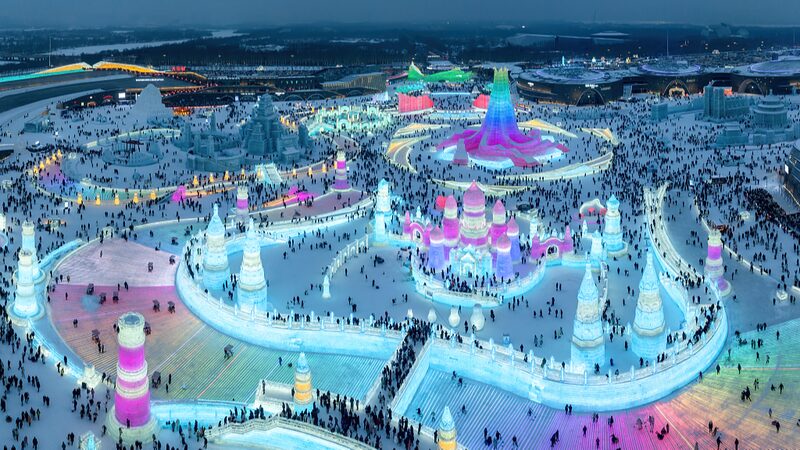From Ice Rinks to Economic Wins: Harbin’s Winter Games Legacy
The 2025 Asian Winter Games (AWG) didn’t just bring snowflakes to Harbin—it sparked a full-blown economic blizzard! 🌀 Hosting Asia’s premier winter sports event for the second time (first in 1996), Harbin welcomed 1,200+ athletes from 34 countries and regions, smashing participation records. 🌏 But the real victory? Turning its frosty charm into a *hot* economic engine.
❄️ Cold Resources, Hot Economy
Harbin’s Yabuli Ski Resort saw a 20% visitor surge during the Games, proving winter sports aren’t just for pros—kids, grandparents, and everyone in between hit the slopes! 🎿 During the 2025 Spring Festival, the city raked in 12.15 million visitors (+20.4% YoY) and 19.15 billion yuan in tourism spending. International travelers? Up by a jaw-dropping 144.7%! 💰
🚄 Infrastructure Upgrades: Beyond the Games
Harbin’s glow-up included expanded airports, new subway lines, and high-speed rail upgrades linking it to Beijing and Shanghai. 🚇 The city’s now primed to become a global winter sports hub, with its iconic Ice-Snow World park expanding to 1 million sq.m—featuring 42 AWG-themed landmarks! ✨
🌐 Sister Cities & Global Spotlight
Post-Games, Harbin’s forging ties with winter powerhouses like Japan’s Asahikawa and Canada’s Edmonton through cultural exchanges and economic forums. 📈 Media giants like Reuters amplified its global profile, proving that ice *can* melt borders. ❤️
From revamped historic blocks to thriving international partnerships, Harbin’s showing the world how to turn a winter wonderland into a year-round success story. 🌟
Reference(s):
Asian Winter Games provides a new chapter for Harbin's development
cgtn.com




